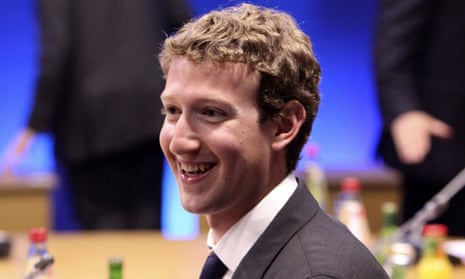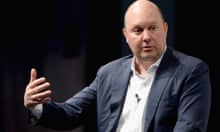Mark Zuckerberg has come under intense criticism from the UK parliamentary committee investigating fake news after the head of Facebook refused an invitation to testify in front of MPs for a third time.
The chair, Damian Collins, said it had become more urgent the Facebook founder give evidence in person after oral evidence provided by the Cambridge Analytica whistleblower, Christopher Wylie.
The MP said: “I think, given the extraordinary evidence we’ve heard so far today, it is absolutely astonishing that Mark Zuckerberg is not prepared to submit himself to questioning in front of a parliamentary or congressional hearing, given these are questions of fundamental importance and concern to his users, as well as to this inquiry.
“I would certainly urge him to think again if he has any care for people that use his company’s services.”
Zuckerberg has been invited three times to speak to the committee, which is investigating the effects of fake news on UK democracy, but has always sent deputies to testify in his stead.
MPs are likely to take a still dimmer view of his decision after he ultimately agreed to testify before Congress in the US. It was reported on Tuesday that the company is now considering strategy for his testimony.
When the Commons committee travelled to Washington DC in February to obtain oral evidence from US companies, Facebook flew over its UK policy director rather than send a high-level executive to speak to the committee.
In response to the latest request, Facebook has suggested one of two executives could speak to parliament: Chris Cox, the company’ chief product officer, who is in charge of the Facebook news feed, or Mike Schroepfer, the chief technology officer, who heads up the developer platform.
However, Theresa May declined to back Collins. Pressed by the committee chairman at the Commons liaison committee later in the day, the prime minister said “Mr Zuckerberg will decide for himself” whether to give evidence to parliament.
She said the Cambridge Analytica affair “raises very deep concern in terms of what is suggested” and repeatedly said it was for Facebook, Cambridge Analytica and any individuals involved to “cooperate fully” with the information commissioner.
The company’s head of public policy, Rebecca Stimson, said in a letter to Collins: “Facebook fully recognises the level of public and parliamentary interest in these issues and support your belief that these issues must be addressed at the most senior levels of the company by those in an authoritative position to answer your questions. As such, Mr Zuckerberg has personally asked one of his deputies to make themselves available.”
Both men, Stimson wrote, “report directly to Mr Zuckerberg and are among the longest-serving senior representatives in Facebook’s 15-year history. Both of them have extensive expertise in these issues and are well placed to answer the committee’s questions on these complex subjects.”
During Tuesday’s committee hearing, Wylie suggested Facebook may have been aware of the large-scale harvesting of data carried out by Cambridge Analytica’s partner GSR even earlier than had been previously reported.
“I remember, and I think this was in around July 2014, [Aleksandr Kogan, GSR’s founder] was delayed for a couple of days because Facebook had throttled the app so that it couldn’t pull as much data, or there was some problem with pulling the data at the same speed as before.
“He told me he had had a conversation with some engineers at Facebook. So Facebook would have known from that moment about the project because he had a conversation with Facebook’s engineers, or at least that’s what he told me.”
It took until 2015 for Facebook to take action on the data-harvesting project, after a Guardian article detailing GSR’s data abuse in support of the Ted Cruz campaign for the Republican presidential nomination.
And it was not until last week, after Facebook had again been notified by the Observer about the harvesting, that the company released a statement noting that “the entire company is outraged that we were deceived”.
Wylie also claimed that Palantir, a national security contractor owned by the Facebook board member Peter Thiel, was allowed informal access to the Facebook data harvested by GSR.
“We actually had several meetings with Palantir,” Wylie said. “There were senior Palantir employees that were also working on the Facebook data. That was not an official contract between Palantir and CA, but there were Palantir staff who would come into the office and work on the data. And we would go and meet with Palantir staff at Palantir.”
Despite the confidentiality agreements he entered into with Cambridge Analytica, Wylie described Facebook’s attempts to kill last week’s story as being the most forceful.
“The most amount of legal pushback that I’ve got actually wasn’t from Cambridge Analytica, it was from Facebook. It’s Facebook who’s most upset about this story,” he said.
“They sent some fairly intimidating legal correspondence. They haven’t taken action on that. I think, I’m not sure exactly what they’re planning to do. They’ve gone silent, they won’t talk to me any more.”
Testifying alongside Wylie was Paul-Olivier Dehaye, the co-founder of personaldata.io, who has been fighting to force the social network to apply European data protection law. Dehaye revealed that Facebook repeatedly tried to argue it was exempt from fulfilling “subject access” requirements, which allow individuals to see the data that companies hold about them, because it would be too expensive to comply.
“They’re invoking exceptions … involving disproportionate effort,” Dehaye said. “They’re saying it’s too much effort to give me access to my data. I find that quite intriguing, because they’re making a technical and a business argument as to why I shouldn’t have access to this data.
“In the technical argument they’re shooting themselves in the foot, because they’re saying they’re so big the cost would be too large to provide me data.”
In effect, Dehaye said, Facebook told him it was too big to regulate. “They’re really arguing that they’re too big to comply with data protection law, the cost is too high, which is mind-boggling that they wouldn’t see the direction they’re going there. Do they really want to make this argument?”









